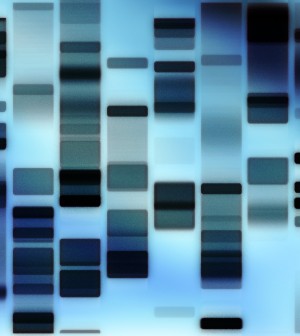- Could Your Grocery Store Meat Be Causing Recurring UTIs?
- Are You Making This Expensive Thermostat Error This Winter?
- Recognizing the Signs of Hypothyroidism
- 10 Strategies to Overcome Insomnia
- Could Artificial Sweeteners Be Aging the Brain Faster?
- Techniques for Soothing Your Nervous System
- Does the Water in Your House Smell Funny? Here’s Why
- Can a Daily Dose of Apple Cider Vinegar Actually Aid Weight Loss?
- 6 Health Beverages That Can Actually Spike Your Blood Sugar
- Treatment Options for Social Anxiety Disorder
Avastin Approved for Late-Stage Cervical Cancer


The anti-cancer drug Avastin (bevacizumab) has been newly approved to treat aggressive and late-stage cervical cancer, the U.S. Food and Drug Administration said in a news release.
Cervical cancer is most often caused by the sexually spread human papillomvirus (HPV). More than 12,000 women in the United States will be diagnosed with the disease this year and more than 4,000 women will die from the illness, according to U.S. National Cancer Institute statistics.
Avastin works by interfering with the development of blood vessels that fuel cancerous cell growth. The new approval is for use in combination with other anti-cancer drugs, including paclitaxel, cisplatin and topotecan, the FDA said.
Avastin’s safety and effectiveness in treating cervical cancer were evaluated in clinical studies involving 452 people with persistent, recurring or late-stage disease, the agency said. Average survival among those who took Avastin and chemotherapy drugs was 16.8 months, compared to 12.9 months among those receiving chemotherapy alone.
The most common side effects of Avastin included fatigue, loss of appetite, high blood pressure, increased blood sugar, decreased blood magnesium, urinary tract infection, headache and weight loss. Some users also developed perforations or abnormal openings of the gastrointestinal tract and vagina, the FDA said.
Avastin is marketed by San Francisco-based Genentech, a member of the Roche Group.
More information
Visit the FDA to learn more.
Source: HealthDay
Copyright © 2026 HealthDay. All rights reserved.










